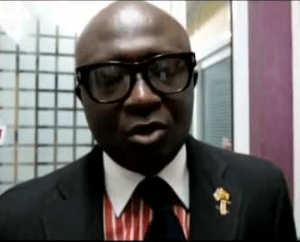Human Rights Court grants KKD bail as A-G looks at victim’s letter

An Accra Human Rights Court presided over by Kofi Essel Mensah has granted Kwesi Kyei Darkwa popularly called KKD, a broadcaster, bail on humanitarian grounds in the sum of GH¢20,000 with two sureties.
KKD is being held for allegedly raping a 19-year-old woman, an offence he has denied.
The court granted the bail because counsel for the accused person filed supplementary affidavits on January, 6 and further affidavits on January 8, 2015 supported by a medical report.
Mr Tony Forson told the court that the medical report issued by one Dr Eugene Tetteh recommended daily exercise for the accused and in view of that the police take him for walk every afternoon.
He also said the accused person pays for his own medical bills, including physiotherapy.
The state objected to the bail application, saying the detention of the accused person did not cause his ill health per the medical report.
Mrs Cynthia Lampety, Acting Director, Public Prosecution told the court that “it is not the remand of the accused person in police custody that caused the swollen feet.”
She said ill health should not be a ground for granting bail, citing authorities to support her argument.
On the purported letter written by the complainant copied to the various authorities, the prosecution said it was only the Minister for Justice and Attorney General, who could decide on the letter.
She said the letter itself had raised a lot of issues, which needed to be looked at.
“The A-G will also look at the authenticity of the letter purportedly written by the lady,” she added.
The judge disagreed with prosecution, saying the 1992 constitution elaborates on the human rights of citizens.
He said the state must make sure that accused persons in their custody should be taken care off well and pay their medical bill when the need arises.
He said if this could not be done, as in the case of the accused person, then “I will grant him bail.”
KKD will re-appear on January 22 at the Kaneshie District Court hearing the substantive case.
Source: GNA
